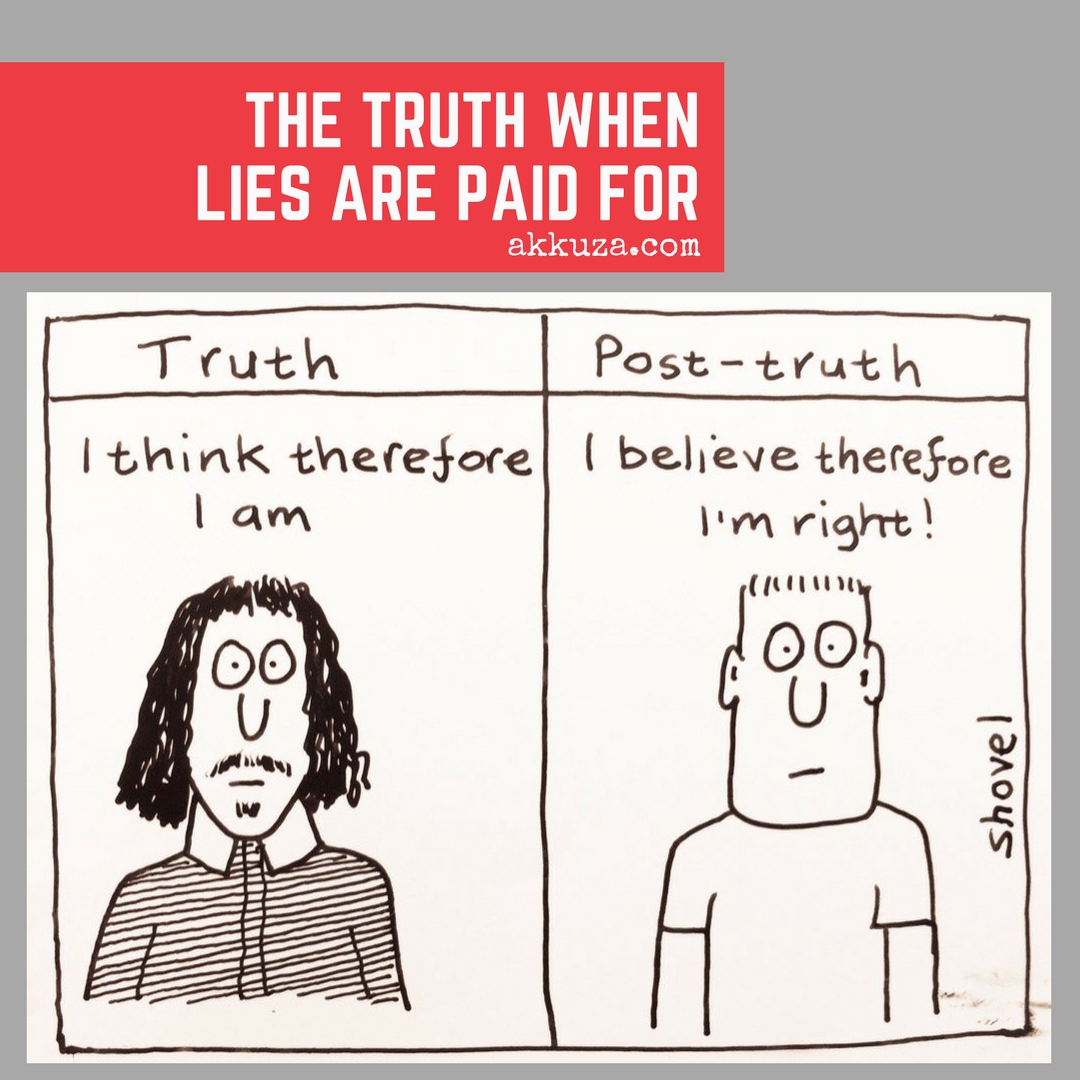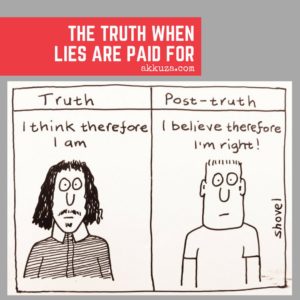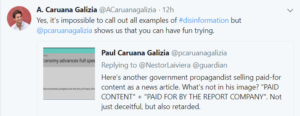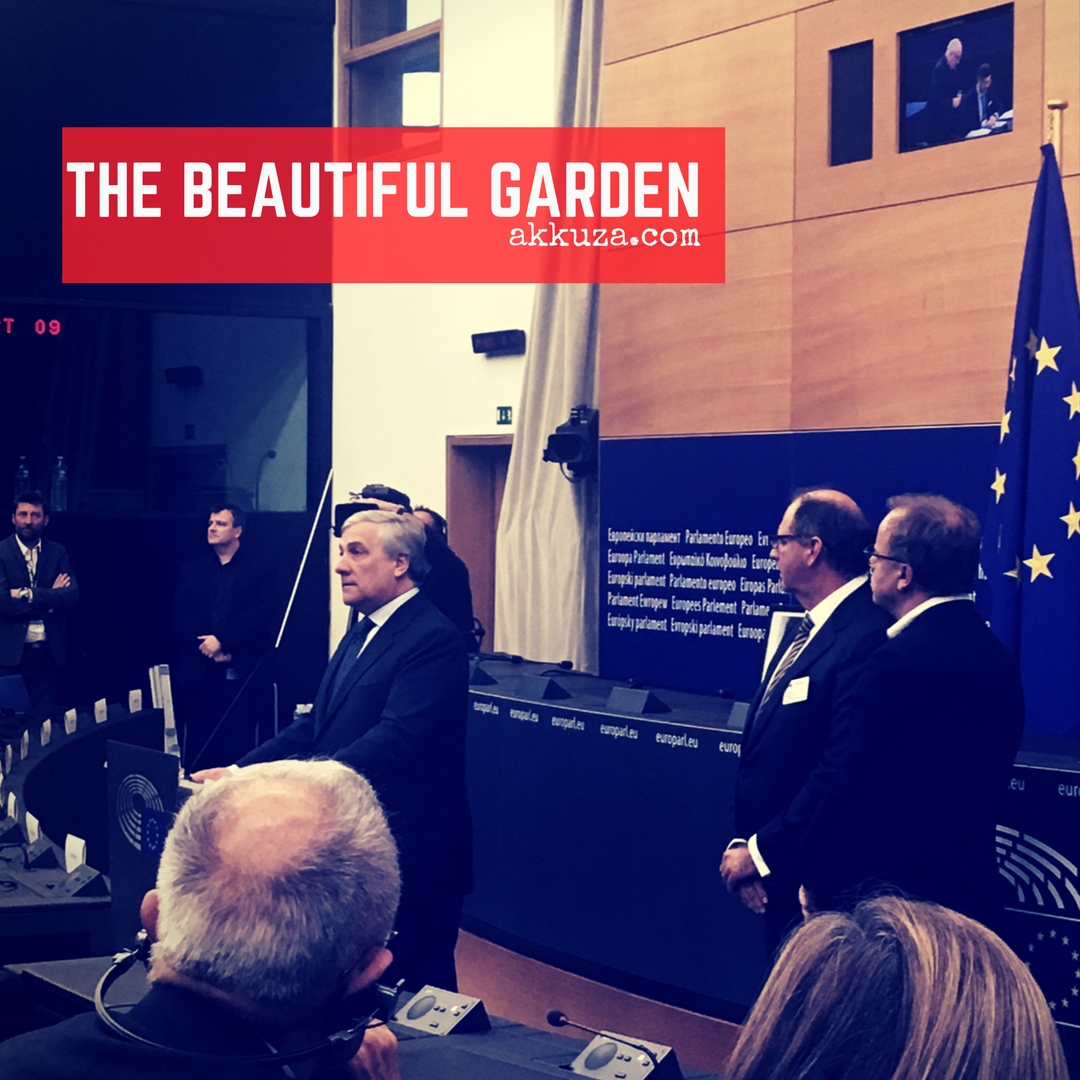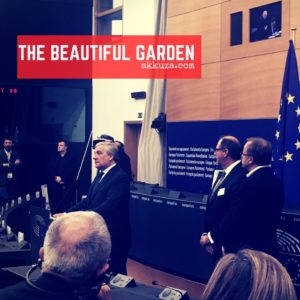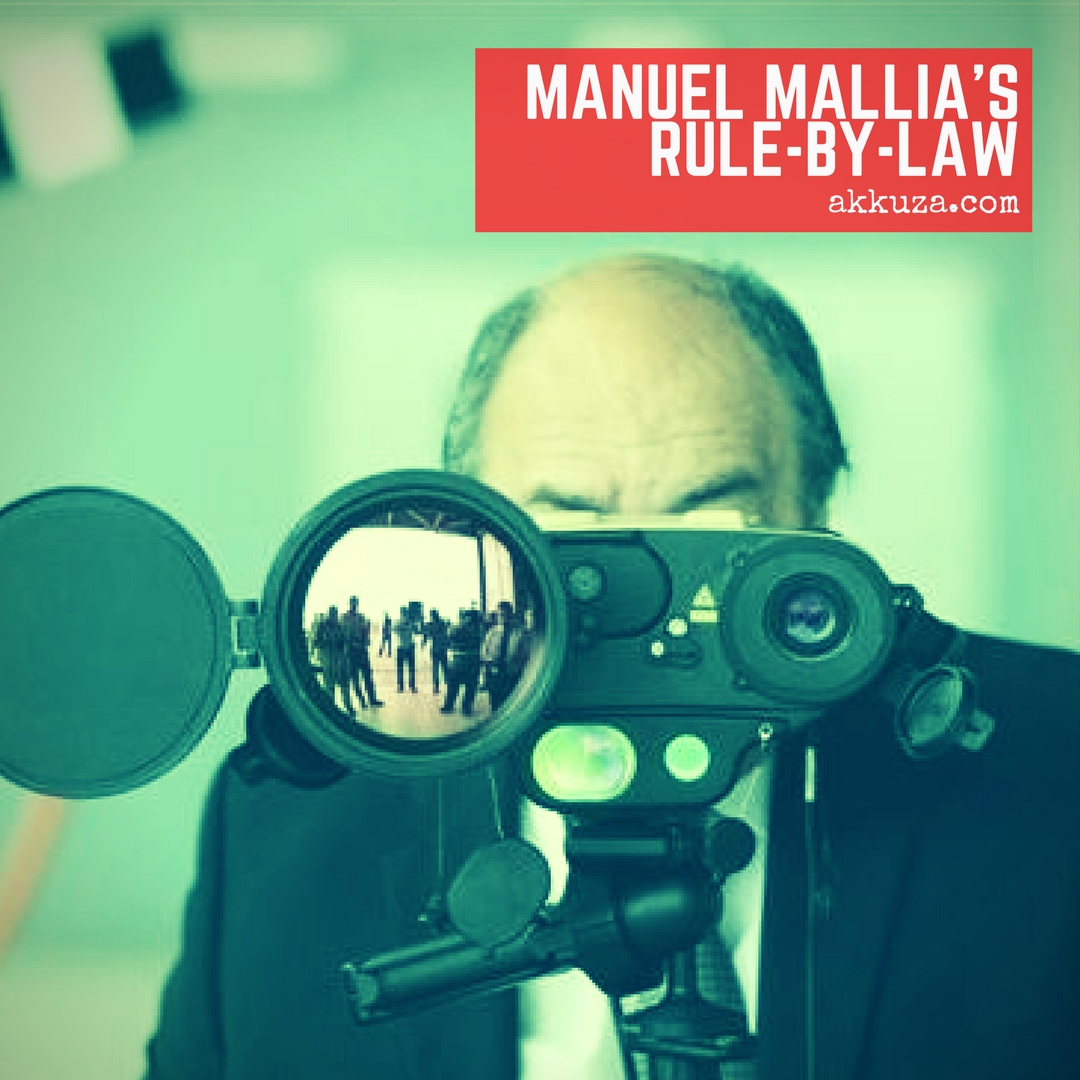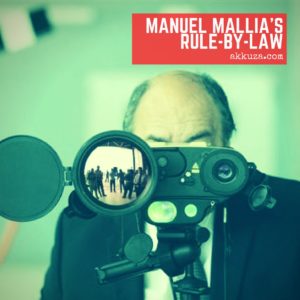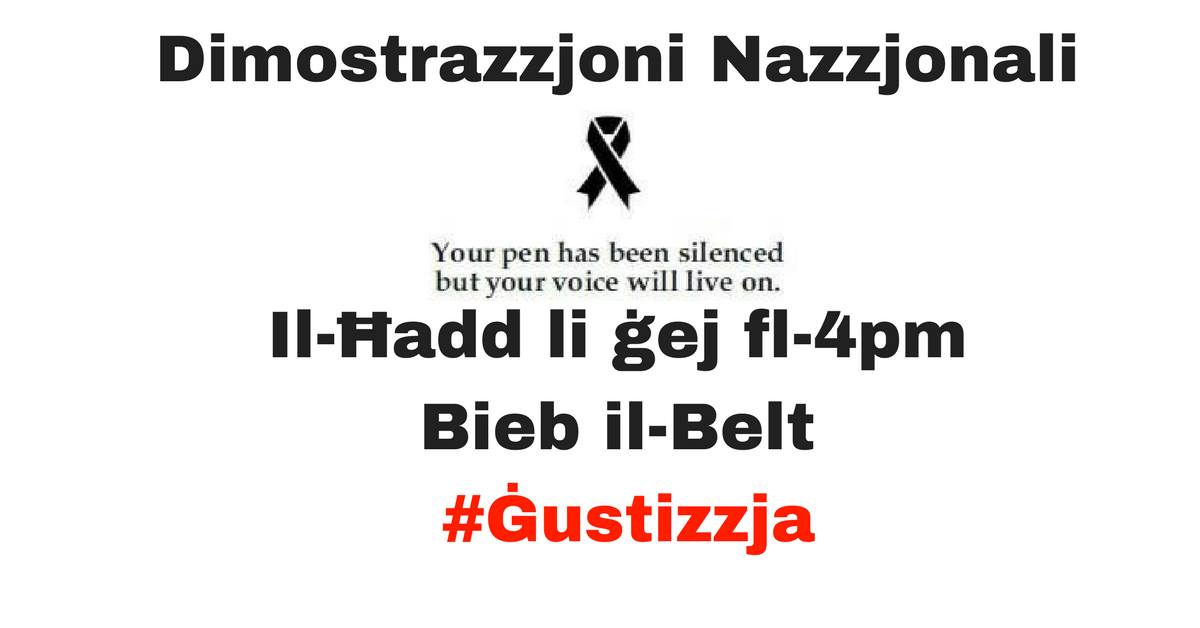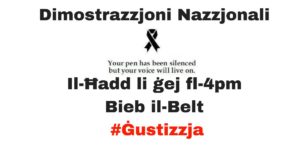
[3 days 6 hours]
The 2008 election campaign was the first one to feature blogs heavily. The Maltese blogosphere had only just really kicked off and most times it was a case of blogs being quoted in what was then referred to as the mainstream media. J’accuse (already three years young at the time) was one of the leading blogs and the comments section also served as a forum for discussion between quite a varied group of individuals. Comments were full of heated exchanges of all sorts and I remember that at the time moderation was still a controversial issue with wild accusations of censorship or appeals to the moderator to intervene when things got too heated (or offensive). One major topic on these pages at the time was the “Wasted Vote” issue as J’accuse’s editorial line developed around the need to elect a third party that breaks the hold of the major parties.
It was around this time that Daphne became one of the regular persons to comment on the blog. Daphne being Daphne, whole discussions soon turned into a Daphne versus the rest kind of match. It was thrilling, it was lively and at times it was dangerously violent – as violent as words and accusations that could fly on the net could be. Daphne’s take on the wasted vote issue was that anyone thinking of voting for a third party was immature and unable to fathom the consequences of “risking” getting the dreaded Labour party elected. We argued. Oh how we argued. I scrolled through the endless arguments in the posts of February and March of that year. Daphne is all over the place. One minute she is arguing with persons who in the future would become trademark Labour trolls, another with Raphael Vassallo, another still with Claire Bonello, Justin Borg Barthet, Fausto Majistral, David Friggieri, Kevin Ellul Bonici and so many many other regulars.
There were times when life got in the way like when I had to absent myself from the keyboard for a few days because I had booked a skiing trip and when I finally found a cybercafe’ in the middle of the Alpes de Huez I noticed that J’accuse had been inundated with comments awaiting moderation. It is so ironic for me to see the comments by Daphne jokingly telling me off to have left the blog for such a long time – when would I be back? when can the discussion resume? Little would I have known that years later I would be the one wondering why Daphne was taking an inordinately long time between one blog post and another. That damn refresh button.
The closer the election got the less patience Daphne had with being moderated by others. It was not in her nature of course to accept to be told what was out of order and what was not. We were all on a learning curve back then remember. I did my best to keep the ensure that discussions on the blog remain civil but those early days already showed the worst of some people when interacting online – and Daphne, being Daphne, managed to get the worst out of some people (and I am not in any way excusing those people). I remember being told off by Daphne for having moderated a whole discussion thread – “we are not schoolchildren here”. In the end I like to think that it was not the random insults that were bandied around that made her move on. It was the need to be in control. Daphne had seen the potential of the blog and wanted part of it.

And that was it. The adventure began. Running Commentary was here to stay. The first post on her blog was entitled (surprise, surprise) Zero tolerance for corruption. The first comment to appear on The Running Commentary? Why of course…
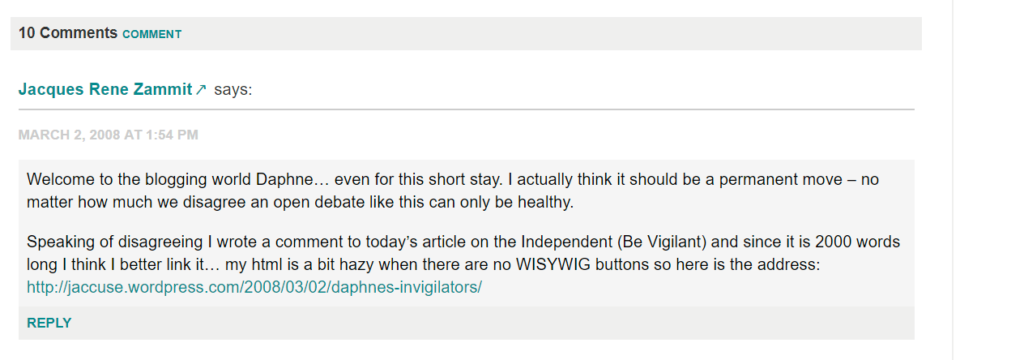
Why am I writing all this? It’s probably my way of coping with the grief and with the anger. 2008 seems like another world, another era. Lawrence Gonzi’s PN would win the election and the battle for constitutional reform would be postponed again. The Running Commentary would go from strength to strength shifting between punditry, cutting analysis and what seemed to me to be petty gossip-column like observations. When the “one man wiki-leaks” dimension came about first with the John Dalli scandal and then with the more recent undoings of the Labour government (first among which is Panama but the list is endless) Daphne’s blog became much larger than an online opinion column. For what it’s worth my main criticism in recent times had been that Malta could not afford to have a “one man wiki-leaks”. First of all because I felt that it is not right that one person should be the gatekeeper of such information and secondly because of the dangers that were being borne by one person.
And those dangers were brought home with the horrendous assassination. We had a one-man wiki-leaks because of the collective institutional failure. We had a one-man wiki-leaks because nobody in his right mind trusts the police. We had a one-man wiki-leaks because it was evident that the whole apparatus of government would turn onto anyone who dared go against the tide of sanitised positivism as proposed by official propaganda. We had a one man wiki-leaks because the abuse of the libel system in the courts of law afforded little comfort to everyone other than the bravest. We had a one-man wiki-leaks because because the fourth estate was an embarrassing shambles – sold out to the highest bidder or, in the case of partisan media, busy being their master’s voice. We had a one-man wiki-leaks because the system of the rule of law had broken down.
Often in her last posts since the last election, Daphne exhorted whoever could to leave the island. There was no future in Malta. The country was going to the dogs. She did say that she urged her successful sons to do so because the island had no more hope. I often wondered what stopped Daphne from leaving herself. What kept her going? Was it a sense of patriotism and some misplaced hope that one day this nation of egoists realises that it needs to think about its collective future? Really. I could never find an answer to that question until her son Matthew spoke to the Guardian. He said something very important: Daphne never gave in to cynicism. She believed she could bring about change. Her work in exposing the wrongs of the nation was all in the hope of getting people to understand why change is needed.
After last election I had given in to the cynicism. I would still be glued to the internet to follow the latest developments from home. Yes, I too would refresh my Running Commentary tab to see if there was anything new that the mainstream press was still unable to report. A few posts here and there on this blog were more the force of habit than anything else as the last shreds of hope waned. Cynicism and lack of faith in fellow citizens had almost dealt a final blow to my will to engage and work for change. Then came October 16th.
I am sad. I am angry. I am full of feelings of revulsion. I am responsible. I am helpless. I I I I. I is the word I feel most guilty of using. I needed to write something to break the blankness of the last few days. I decided to share this chronology of the beginnings of a blog that would change Malta’s history.
We are back. We want change and we will start to fight for it to happen as from today.
[3 days 8 hours] – the time for grieving is over. The time to fight has begun. For the change we all believed in – to make Malta the country we all want to live in again.


